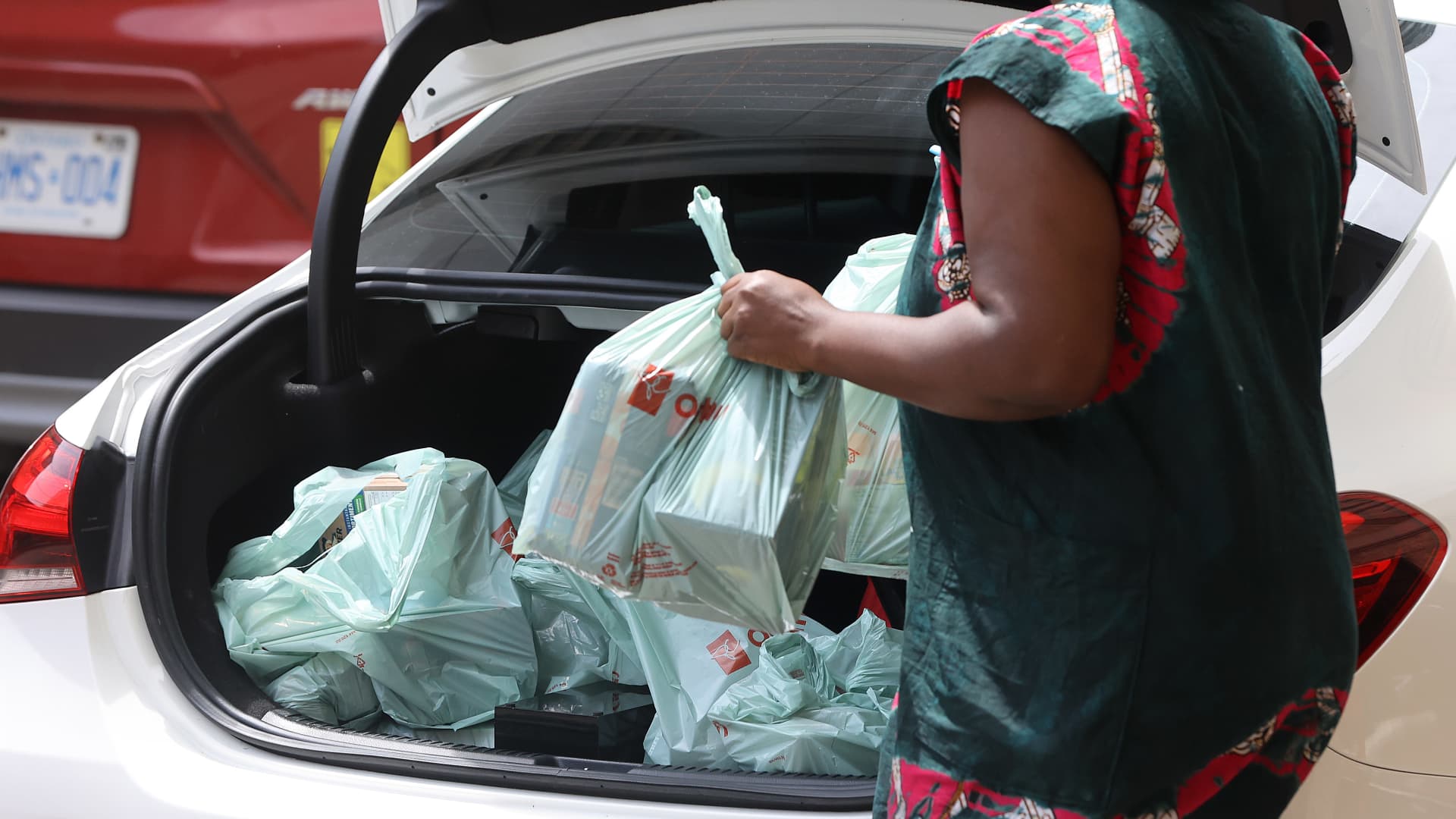Restaurants and grocery stores are worried about a supply of alternative products as the government announces details of its ban on single-use plastics. in Toronto. June 20, 2022.
Steve Russell | Toronto Star | Getty Images
Canada to ban the manufacture and import of single-use plastics by the end of the year, the government has announced announced Mondayin a major effort to fight plastic waste and fight climate change.
The ban will cover items such as checkout bags, cutlery, straws and catering items made from or containing hard-to-recycle plastics, with some exceptions for medical reasons. It will come into force in December 2022 and the sale of these items will be banned from December 2023 to give businesses in Canada enough time to make the transition and deplete existing stocks, the government said.
Single-use plastics make up the majority of plastic waste found on Canadian shores. According to government data, up to 15 billion plastic checkout bags are used every year and around 16 million straws are used every day.
Prime Minister Justin Trudeau, who pledged in 2019 to phase out plastics, said the ban will eliminate more than 1.3 million tonnes of plastic waste over the next decade, the equivalent of a million garbage bags.
Restaurants and grocery stores are worried about a supply of alternative products as the government announces details of its ban on single-use plastics. in Toronto. June 20, 2022.
Steve Russell | Toronto Star | Getty Images
“We promised to ban harmful single-use plastics, and we are keeping that promise,” Trudeau wrote in a tweet on Monday.
Canada will also ban the export of these plastics by the end of 2025 to combat international plastic pollution.
“By the end of the year, you will no longer be able to manufacture or import these harmful plastics,” said Steven Guilbeault, Federal Minister of Environment and Climate Change. “After that, companies will start offering the sustainable solutions Canadians want, whether it’s paper straws or reusable bags.”
“With these new regulations, we are taking a historic step in reducing plastic pollution and keeping our communities and the places we love clean,” Guilbeault said.
Canada’s effort comes as countries begin to impose bans to tackle the problem of plastics, which are made from petroleum and can take hundreds of years to break down.
The United States is the world’s largest contributor of plastic waste, according to a 2021 Congress-mandated report. This month, the Home Office announced it would phase out the sale of single-use plastic products in national parks and other public lands by 2032.
Sarah King, Greenpeace Canada’s Oceans and Plastics Campaigner, said in a statement that Canada’s ban is a critical step forward, but “we’re not even at the starting line yet.”
“The government needs to step up a gear by expanding the ban list and reducing overall plastic production,” King said. “Betting on recycling for the remaining 95% is a denial of the scale of the crisis.”

“Evil alcohol lover. Twitter junkie. Future teen idol. Reader. Food aficionado. Introvert. Coffee evangelist. Typical bacon enthusiast.”
